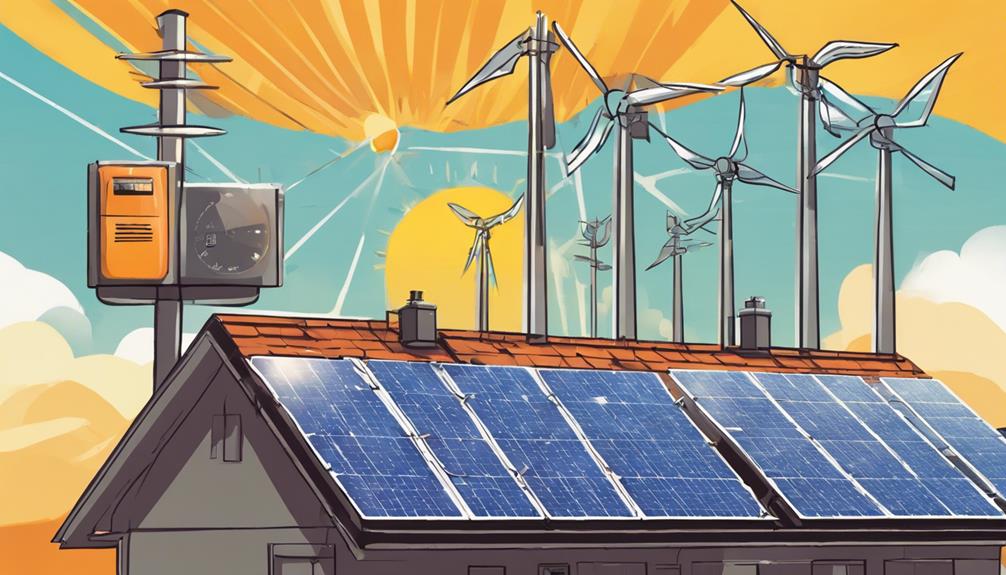
Solar panels for homeowners have become increasingly popular in recent years, and for good reason. As energy costs continue to rise and environmental concerns dominate public discourse, many are turning to renewable energy sources. This blog post will explore the benefits of solar panels, the different types available, how to choose the right system, and the financial incentives that make solar energy an attractive option for homeowners.
Understanding Solar Panels and Their Benefits
Solar panels for homeowners convert sunlight into electricity, providing a sustainable energy source that can significantly reduce monthly utility bills. These systems harness the power of the sun and transform it into usable energy for your home. One of the most compelling benefits is that solar panels can lead to substantial savings on energy costs. Homeowners can produce their own electricity, reducing their reliance on traditional power grids and ultimately lowering their carbon footprint. Additionally, many states offer tax incentives and rebates for solar panel installation, making it an even more appealing option.
Types of Solar Panels: Which One is Right for You?
When considering solar panels for your home, it’s crucial to understand the different types available. The three main types of solar panels are monocrystalline, polycrystalline, and thin-film. Monocrystalline panels are known for their high efficiency and longevity, making them a popular choice among homeowners. Polycrystalline panels are generally less expensive but offer slightly lower efficiency. Thin-film panels are lightweight and flexible, making them suitable for unique applications but typically less efficient than the first two types. Choosing the right type of solar panel depends on your budget, space, and energy needs.
Factors to Consider When Choosing Solar Panels
Before investing in solar panels for your home, there are several factors you should consider. First, assess your energy consumption to determine the size of the system you need. Next, evaluate the amount of sunlight your location receives throughout the year. A solar panel system’s efficiency can be significantly impacted by shading from trees, buildings, or other obstructions. Additionally, consider the orientation and tilt of your roof, as these factors can influence energy production. Finally, research various solar panel brands and manufacturers to ensure you choose a reputable company with a solid warranty.
The Installation Process of Solar Panels
The installation process for solar panels can vary depending on the complexity of the system and the specific installation company. Generally, the process begins with an initial consultation, where a solar energy expert assesses your property and energy needs. Once a system is designed, the installation team will mount the solar panels on your roof or property, connect them to the inverter, and ensure that everything is compliant with local regulations. After installation, your system will be inspected and connected to the grid, allowing you to start generating your own electricity. Homeowners should anticipate the installation process to take anywhere from one to three days, depending on the system size and complexity.
Financial Incentives and Savings from Solar Panels
One of the most enticing aspects of solar panels for homeowners is the potential for financial incentives and long-term savings. Federal tax credits allow homeowners to deduct a significant percentage of the cost of their solar panel system from their taxes. Additionally, many states and local governments offer rebates or financial incentives that can further reduce the initial investment. Over time, the savings on energy bills can lead to a return on investment that makes solar panels a financially sound choice. Many homeowners find that their solar panels pay for themselves within a few years, resulting in lower energy costs for decades to come.
Understanding Net Metering and Its Benefits
Net metering is a billing mechanism that allows homeowners with solar panels to receive credit for excess energy they generate. When your solar panels produce more electricity than you need, the excess energy is sent back to the grid, and you receive credits on your utility bill. This system can significantly enhance the financial benefits of solar panels, as it enables homeowners to offset their energy costs even further. Understanding how net metering works in your area is crucial for maximizing the benefits of solar panels and ensuring you take full advantage of this arrangement.
Maintenance and Care for Your Solar Panels
While solar panels require minimal maintenance, it’s essential to keep them in good working condition to ensure optimal performance. Regular cleaning is crucial, especially in areas with dust, dirt, or bird droppings, which can obstruct sunlight and reduce efficiency. Most homeowners can clean their solar panels with a simple garden hose and a soft brush, but it’s advisable to consult with a professional if you’re uncomfortable doing it yourself. Additionally, it’s wise to schedule periodic professional inspections to ensure your system is functioning correctly and to address any potential issues before they become significant problems.
The Future of Solar Panels: Trends and Innovations
As technology continues to advance, the future of solar panels looks promising. Innovations such as solar roofing tiles, improved battery storage solutions, and more efficient solar panel designs are making solar energy more accessible and efficient for homeowners. Additionally, the growing emphasis on sustainability and renewable energy is likely to drive further investments and developments in solar technology. Homeowners who invest in solar panels now can benefit from these advancements in the coming years, ensuring they remain at the forefront of renewable energy solutions.
In conclusion, solar panels for homeowners provide a sustainable and cost-effective energy solution. By understanding the benefits, types, installation process, and financial incentives associated with solar energy, homeowners can make informed decisions that positively impact their energy consumption and the environment. As technology continues to evolve, investing in solar panels is not just a forward-thinking choice but a necessary one for a more sustainable future.





